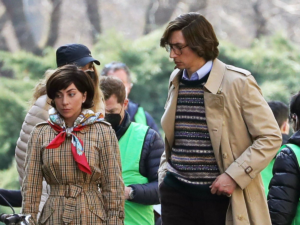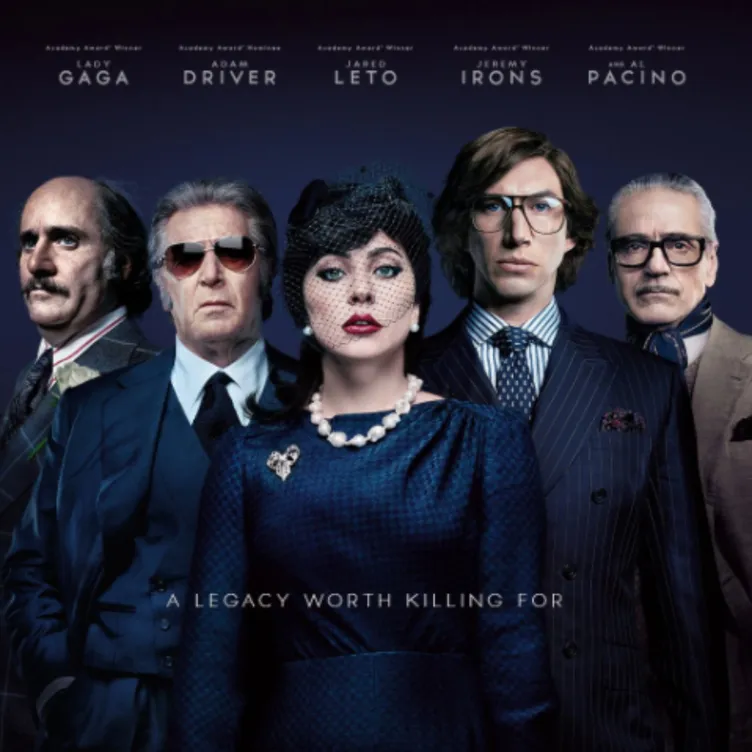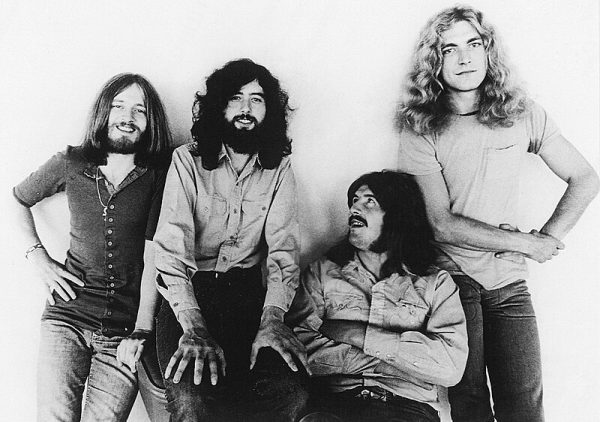House of Gucci: All Looks and No Heart
On March 27, 1995, the heir to one of the most famous families in fashion was murdered. Three years later, his ex-wife was arrested for the crime. Not much else is known about the internal conflict in the family that led to the killing. This story, at first, seems very attractive to the film industry. Extreme wealth, excessive lifestyles, and luxury fashion all tied together by a story of murder in the family. “The Rise and Fall of the House of Gucci.” However, something went wrong. House of Gucci failed to tell this story, and, much like the killings themselves, leaves us wondering, what actually happened to the Gucci family?
The plot of House of Gucci focuses on the central relationship between Patrizia Reggiani (Lady Gaga), and Maurizio Gucci (Adam Driver). Patrizia is a lower class woman with big dreams and a social personality, while Maurizio is the awkward but wealthy heir to half the Gucci family business. A classic story about love that breaks the old class divides. The two heads of the House of Gucci are Rodolfo (Jeremy Irons), Maurizio’s father, and Aldo (Al Pacino). Rodolfo is the more conservative, sensible half who still resides in Italy, while Aldo has moved to New York to live a more eccentric life with his son Paolo (Jared Leto). Paolo is seemingly misunderstood, with fashion dreams of his own, but is resented by everyone else in the family, and everyone in the audience.

The cast offered some of the best aspects of the film, and some of the worst. Seeing Al Paccino and Jeremy Irons in conversation as on screen brothers is a gift. Overall, Lady Gaga and Adam Driver give good enough performances, but neither actor pulls off the intimidation necessary in the film’s latter half. Most of the other characters are forgettable, except for the seemingly random addition of Salma Hayek as Patrizia’s fortune teller, and Jared Leto’s embarrassingly bad portrayal of Paolo. While the audience understands that Paolo is the runt of the family, too stupid to see himself as an idiot, Leto gives an over-the-top and forced comedic performance that ruins every scene he is in. It is annoying, obnoxious, and had me metaphorically banging my head against the wall each time he spoke. His Italian accent is also Mario-esque and atrocious.
I only know director Ridley Scott from his science fiction work on Alien, Blade Runner, Prometheus, and The Martian, so I was interested to see what he would do with a more down-to-earth story. Gucci is also his second big budget epic of the year, with the medieval drama The Last Duel, released a little over a month ago, being a critical success but a box-office failure. I have to say, House of Gucci looks great. The color grading and lighting makes the film feel more dramatic and moody, while still being bright. As you expect from a movie about the fashion industry, the costumes and production design are good, with makeup that manages to make most everyone look a little more Italian. However, even though the film spans three decades, these aspects remain stagnant. The constant use of pop music in the soundtrack doesn’t help either, simultaneously confusing audiences by not using period accurate music, as well as creating a mixed tone throughout. Unironic pop music playing over dramatic sequences of betrayal, murder, and family conflict? No thanks.
The biggest problem throughout the film is the lack of development in certain characters, relationships, and plotlines. The central relationship between Patrizia and Maurizio is rushed at the beginning and at the end. I didn’t buy that they actually loved each other to begin with, and the degradation of their relationship seemed to happen overnight. Important plotlines like the family’s tax issues seem to come out of nowhere, and characters resort to drastic measures without the appropriate motivation. Most of the scenes are short, and cut away too fast. The film is afraid to linger, and doesn’t allow the audience to let certain scenes sink in before we cut away to the next one. In an attempt to become more fast paced and mainstream, the film undercuts the drama and tension that makes classic crime dramas great.
House of Gucci (2021)
dir. – Ridley Scott
3/10. While the look of the film and some of the older actors bring drama and class, pacing and development issues leave it feeling hollow, and a lack of emotional potency makes the true story more interesting than the dramatization.





